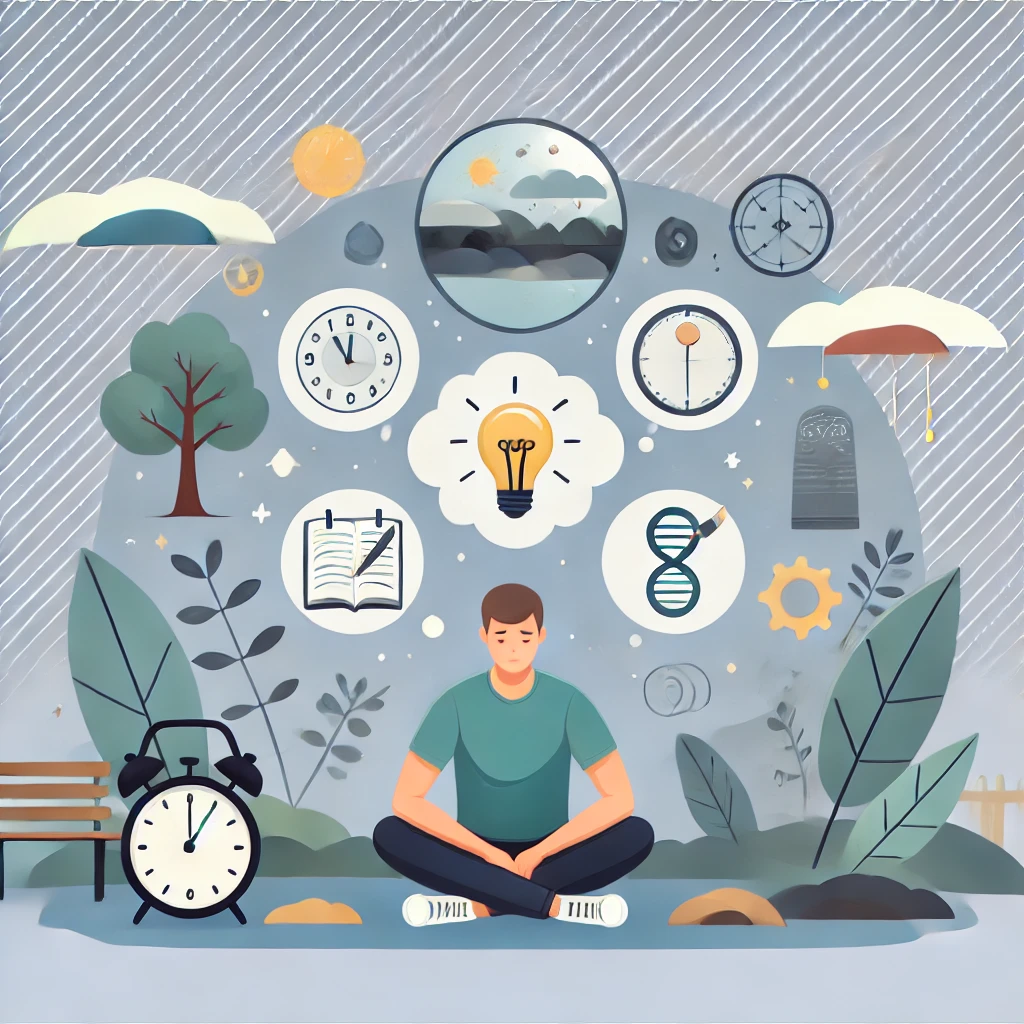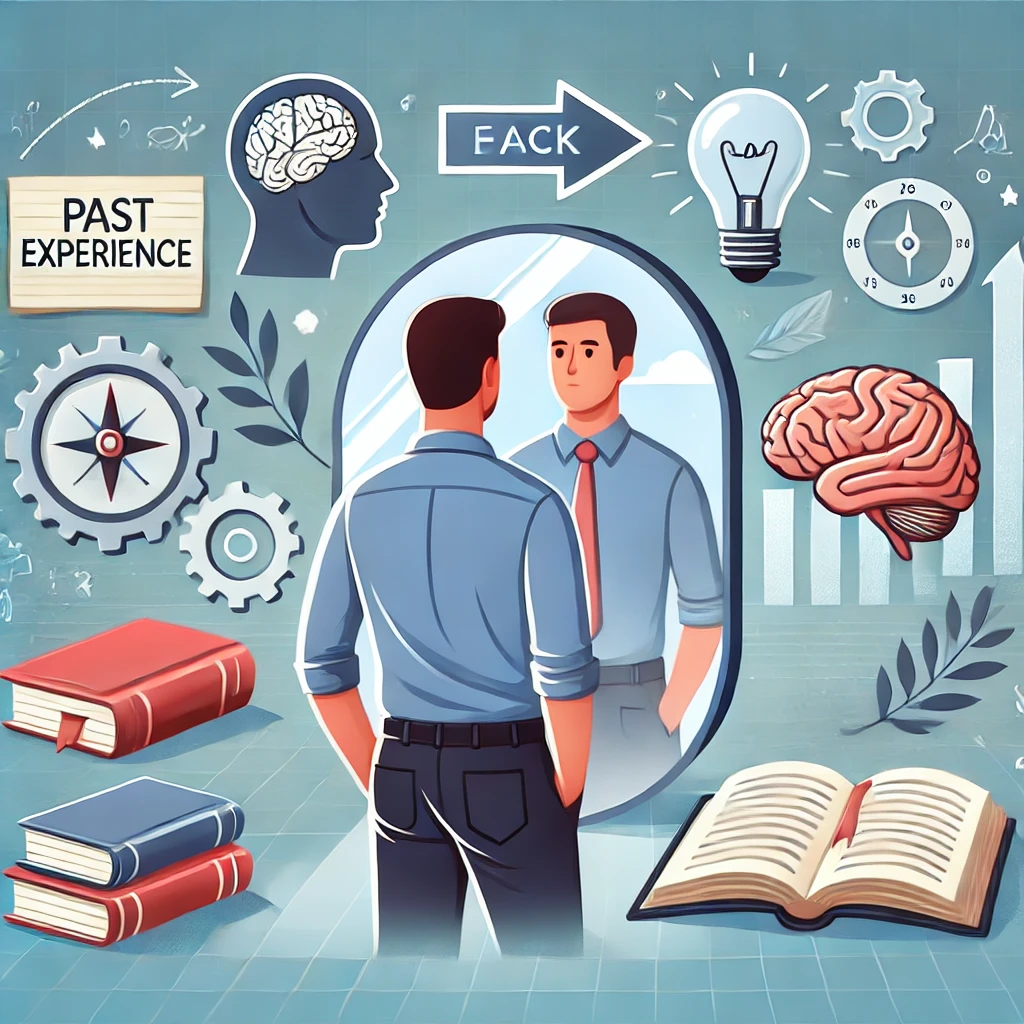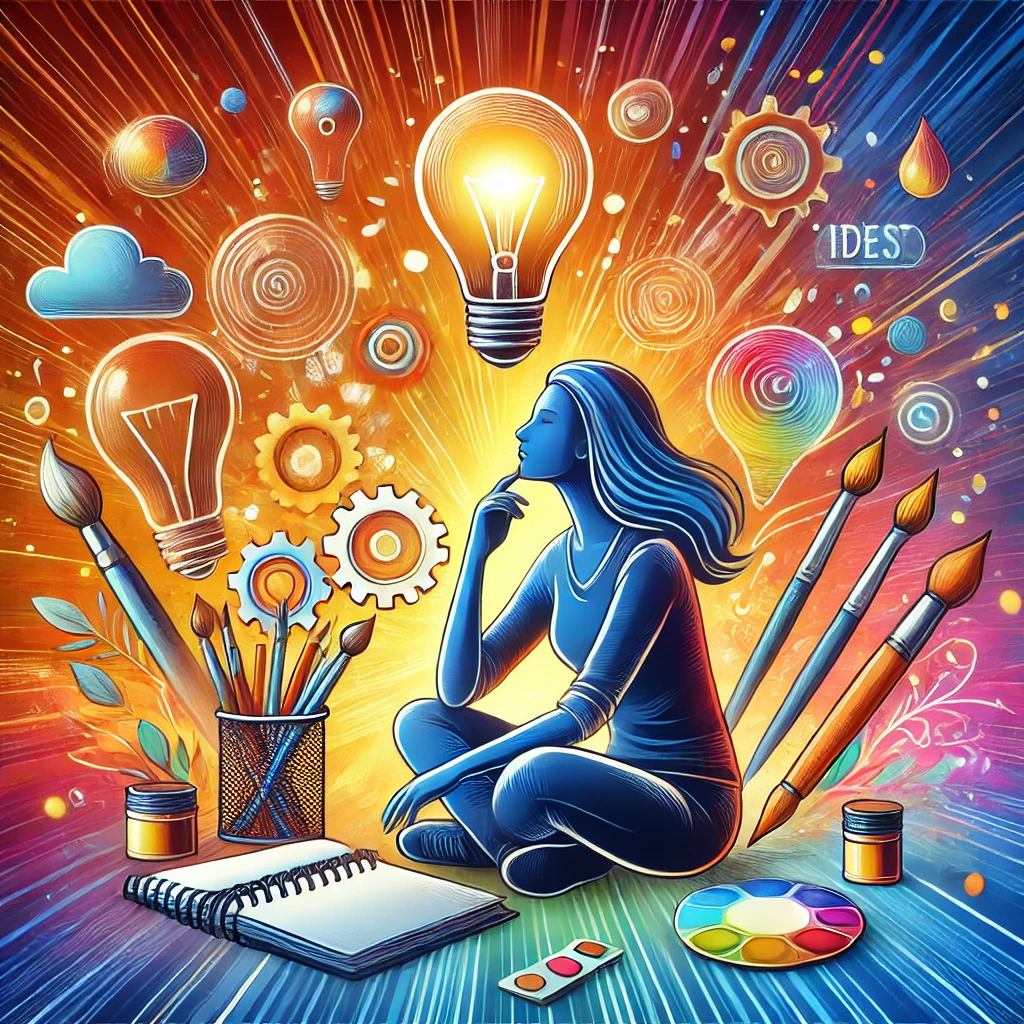Thinking about our lives is key but often not done enough for growth. Many known minds, like Richard Carlson, tell us it’s crucial for success. Yet, taking time to look inwards is hard for many. People are constantly consumed by daily demands, moving at full speed, and facing an exhausting amount of work and so much pressure. The need to do so, however, is very important.

Looking back daily, or even more, can truly better us. Writing down what we do each day often shows us things we didn’t know. Just like paper writing serves as a metaphor for self-assessment, this process helps us learn about our habits and feelings. This way, we can improve ourselves every day.
Rayson Choo says writing our thoughts can offer clarity and big ideas. When we share these writings, others might learn too. It can make us happier by seeing all the good things we’ve done. It helps us remember what’s really important in life. Reflection can’t simply be accomplished by checking it off a to do list or conveniently coupled with other tasks.
Just asking ourselves a few simple questions daily can be a game-changer. It’s a big help for growing, both in personal and work life. In the end, it helps us see the ‘Big Picture’. Learning and improvement require intentional time in your schedule, and reflection is not just about killing two birds with one stone.
It guides us to new goals and a brighter future. Many people have realized the importance of reflection only after taking the time to pause and think deeply.
Introduction to Personal Growth
Personal growth is a lifelong journey that invites us to take a deep breath , and take a good hard look inside. At the core of this journey is self reflection - the key to unlocking a better understanding of who we are as people & how we fit into the world around us. When we actually take the time to slow down & reflect, we become a lot more aware of what’s going on inside our heads & in our hearts. This is essential for building a genuine sense of who you are & doing whats right for your mental health. Making reflection a regular habit helps you figure out what you’re good at & what you need to do better at, set goals that actually mean something, and come up with a plan to achieve them. By making self reflection a priority, it really helps us get a deeper sense of what’s going on with us, and that helps us feel more grounded & healthy - which gives us the power to keep growing and doing well no matter what life throws at us.
Enhates Self-Awareness
Knowing yourself well is crucial for getting better. When you think about your life, you see what you’re good at and what you can work on. Take time to reflect on who you are as a person, as this self-awareness is essential for making important decisions in your life. This helps you become a better version of yourself, and allows you to understand why you decided to take certain actions or make specific choices.
Understanding Your Strengths and Weaknesses
Looking back on what you’ve been through can show your strengths and where you can grow. Through reflection, an opinion formed about your abilities and areas for improvement can guide your next steps. Tang Wulin is a good example. Even though his Blue Silver Grass didn’t seem like much at first, he found his true power. This deep look at himself helped Wulin use his strengths powerfully. Because of this, he wisely spent his saved coins on a soul ring.

Recognizing Your Emotions
Understanding and handling your feelings well is a big part of being smart with emotions. When you think about things, it’s easier to understand your feelings. Taking time to listen to your emotions is a key part of self-reflection. For example, Wulin’s love for food got him the nickname “Rice Bucket.” His ability to save 30,000 coins and pick the right soul ring shows he’s really smart about what he needs, both emotionally and materialistically.
Boosts Productivity
Thinking about your own actions is key to getting more done. When we think about what we’re good at and what we need to work on, we make the most of our time. This lets us focus better on what we’re doing. Taking time to reflect also helps us plan our next steps more effectively. We set time aside to look at what we’ve done and what we need to do better. This helps us find ways to do things more effectively.
Setting Clear Goals
It’s super important to set clear goals for yourself. This makes it easier to get things done. Big goals can be hard to tackle, but breaking them into small parts helps. It keeps us on track and makes hitting our goals easier.
When we think about what we did each day, we learn from it. A study showed that spending just 15 minutes at the end of the day thinking about what we learned made people perform better. They did 23% better than those who didn’t reflect.
Another study found that people who thought about the day ahead while commuting were happier and more productive. This shows us that setting goals and reflecting can really boost our work and happiness.
Facilitates Learning and Growth
Thinking about past events is key to keep learning and growing. John Dewey says we truly learn by looking back on what we’ve done. Doing this helps us be better at handling tough times and getting ready for what’s next. To reflect means slowing down to truly learn from our experiences.

Reflecting on Experiences
Most students don’t usually spend time reflecting, but this can make them better learners. To make reflection a habit, set small goals each day and check how you’re doing. Using tools like journals and portfolios for your work help you keep getting better. Reflection can also be conveniently coupled with daily routines, such as during a morning walk or while doing chores, making it easier to take time to reflect consistently.
Reflection boosts thinking and makes a big difference in jobs like teacher, nurse, coach, and in business. It makes patient care better, teaches better, improves how we talk to others, and boosts companies. Doing this with friends, in writing, or with a mentor helps us grow.
Adapting to Challenges
Looking back on what we’ve learned is vital for dealing with tough times. It helps us get ready for new stuff by understanding old lessons. This way, we become more aware of what we’re good at, what we’re not, and how we can do better.
Talking in groups, getting prompts, and sharing feedback helps too. Doing this reflection often can change how we learn, make our studies richer, and build a mindset for growing forever.
Improves Mental Well-being
Reflection is more than just looking inside oneself. It is a key practice that boosts mental health. It also improves your psychological well-being. Work stress, anxiety, and depression cause the UK to lose 13.7 million work days every year.
Mindfulness is very important. It helps us realize the impact of our thoughts. It shows that just 15 minutes of daily reflection make employees work 23% better. This proves its deep effect.
Mindfulness helps us see our achievements and failures. It leads to positive thoughts. This increases our self-confidence and happiness. It also helps lessen daily stress, bringing back emotional balance.
It gives us a wider view. This makes day-to-day problems seem not so big. It brings us peace and clear thinking.
Research shows UK commuters who think while traveling are happier and more productive. Structured reflection improves our days. Asking questions about our work, relationships, and health helps. It makes us set goals and solve problems. This grows us throughout the year.
Regular self-reflection improves our thinking skills. It helps us grow personally. This makes us stronger against daily stress. Bad times may be hard but they can teach us a lot.
Reflecting with journals or questions is good for your mental health. It helps us understand us and others better. It can also lift our spirits. Making reflection a habit fits our need for meaning. It makes our minds healthier.
For more insights on self-reflection’s importance, check this link. For blogs about reflection, click here and to learn more on self-reflection in mental health click this article.
Reflecting regularly helps keep our minds healthy. It lets us understand our feelings better. It helps us stay happy and balanced. Mindfulness changes our mental world. This leads to a life of wellness and joy.
Generates Creative Ideas
Thinking back is a great way to come up with new ideas. By reflecting on what we’ve done, we often find new thoughts and inspiration. These can turn into cool projects or solutions. Writing about your thoughts or even just thinking about your day can make amazing things happen. They help us see things in a new light and find different ways to solve problems. Some of the most creative ideas can seem weird at first, but they often come from taking time to reflect deeply.

Finding Inspiration
Try the Rose/Thorn/Bud method for coming up with new ideas. It’s a tactic that can really boost your creativity. Starting the New Year fresh is a great opportunity for reflecting and planning. This can be a big push for new beginnings. Taking time to reflect during times of change can help guide your most important decisions, ensuring you move forward with clarity and purpose. Using mind maps, like the ones Ayse Birsel talks about in “Design the Life You Love,” can make your brainstorming even more effective.
Looking within can also be a big source of inspiration. Tobias Leisgang, an Innovation Director, shares his thoughts on LinkedIn. This is a great example of how reflecting openly can lead to growth. Everyone, from students to professionals, can benefit from keeping a creative journal. It’s good for taking note of your feelings and insights, whether they’re positive or negative.
Sparking Innovation
Reflection is also powerful in the workplace, sparking new ideas. In HR, reimagining how we do performance reviews added reflection questions. This made the process more creative. Teams at the top use a method called affinity mapping for thinking and creating together. However, true reflection shouldn’t be squeezed into a yoga class or other physical activity; it deserves its own dedicated time. It proves that reflecting works for all levels of idea generation.
Creative routines combined with reflection can keep us inspired and ready for new things. This was clear for students after they remembered and shared their thoughts. Their creativity took off. Reflection is key for making new ideas, both at home and at work.
Strengthens Relationships
Thinking about ourselves helps make our relationships stronger. It does this by making us better at chatting and understanding others’ feelings. When we think about our own thoughts and feelings, we learn to see other people’s viewpoints.
This makes our talks more thoughtful. It helps us connect better with family and friends.
Improving Communication
Reflecting on our talks makes us better at chatting. Writing down what we’ve talked about or how we felt helps a lot. It makes our talks clearer and more heartfelt.
Doing this can also help solve any misunderstandings. It brings us closer to the people we care about.

Building Empathy
Empathy means understanding and sharing others’ feelings. Looking at our own feelings and thoughts helps us do this. It makes our connections stronger and our relationships better.
When both people try to understand each other, magic happens. It makes a space where emotions and needs can be talked about freely. This leads to growing and getting closer.
The Importance of Taking Time
In a world that moves at an unsustainably fast pace, it’s easy to get swept up in the constant demands of daily life. We often find ourselves running from one task to the next, rarely stopping to reflect on where we are or how we feel. Yet, taking time to reflect is crucial for our self awareness and overall happiness. When we slow down and focus on the present moment, we give ourselves space to process our emotions, clarify our values, and gain a fresh perspective on life. Whether it’s through a quiet walk, a few minutes of meditation, or simply sitting in silence, making time to reflect helps us reconnect with what truly matters. This practice not only grounds us in the present but also guides us toward making choices that align with our values and long-term goals.
Time for Reflection as a Tool for Success
Reflecting on your day helps you be more successful. But our busy lives often make this hard. By taking just 10 minutes for yourself each day, you can stay clear and focused.
Looking back on what we’ve done can be tough. But it’s powerful for getting better at work. It helps you see what you need to work on and keeps your actions in line with what you want.
Feeling unsure how to get started? Reflecting, especially with others, is good for everyone involved. It helps share and learn from each other’s experiences. This can lead to a team that’s always learning and ready to adapt.
Matt Auron, a top coach, says leaders should make time to reflect each week. Revisiting tough choices can help you do better next time. Companies like Evolution mix in meditation with their meetings to stay grounded, a great idea to follow.
Setting up clear ways to reflect helps it work better. Doing this often, like a weekly yoga session, plus handling stress, can make a big difference. Remember, reflecting might bring up hard feelings. Stay true to yourself and focus on growing.
Reflection isn’t just a useful tool. It’s key to getting better all the time. It lets you change focus smartly and bounce back from hard times. Making self-reflection a regular habit will push you closer to your dreams.
Offers Perspective
Looking back helps us understand our life journey. We can see daily happenings in a bigger context. Through this, we check our goals and choose what really matters. It guides us to focus on what’s important for our dreams and values.
Seeing the Bigger Picture
Seneca, a famous Stoic philosopher, talked about the importance of looking at life closely. He said we should reflect every day. Apps like Reflection.app help us do this. They let us see our goals clearly. With Monthly Reviews, we celebrate wins and learn from tough times. This gives us a better view of our journey.

Prioritizing What Matters
Epictetus, another Stoic thinker, said we should focus on what we can control. This idea is key to gaining perspective. Turning to Reflection.app, we think about our hard times. It helps us grow personally and see the bigger picture well. By reflecting, we make sure our actions match our important values and goals.
Implementing a Reflection Practice
Starting a reflection practice doesn’t have to be complicated. Begin by setting aside a few minutes each day to reflect on your thoughts, emotions, and experiences. This could be as simple as jotting down your feelings in a journal, practicing meditation, or taking a few mindful breaths before bed. Try to weave reflection into your daily routine—perhaps during your morning coffee or as you wind down at night. The most important thing is to approach reflection with openness and without fear or self-criticism. Allow yourself to explore your emotions and thoughts honestly, knowing that this process supports your mental health and self awareness. By making reflection a consistent habit, you’ll cultivate a greater sense of clarity, emotional balance, and overall well-being in your life.
Conclusion
Taking time to reflect is more than a break from daily life. It’s a way to make big changes. It helps you know yourself better, be more productive, and have better ideas. It also makes your relationships stronger.
The benefits of reflecting are clear, especially for students. After just a short time of reflecting, their thoughts went deep. This shows how important reflection is for everyone, in school and at home. It helps us look back and get ready for what’s next by changing how we think and feel.
Reflecting is key for growing and seeing things in a new light. It can be structured, like writing about your thoughts. This can be in an organized way to express your feelings better.
Choosing to reflect is choosing to wise up and act better. It can change how you see the world. It could be writing about your experiences or learning at school. Either way, reflecting is more than just thinking. It’s a strong move for growing in life and work.
FAQ
What are the benefits of self-reflection?
Self-reflection helps us understand our thoughts and emotions. It lets us find answers to our problems. This process makes us aware of ourselves and how we feel. It also helps us grow, both personally and professionally. It makes our minds healthier and boosts our creativity and new ideas.
How can I start a reflection practice?
Start by pondering over your experiences and actions. A good way to do this is through writing in a journal. Try to reflect a little bit every day.
Why is self-awareness important?
Knowing ourselves helps us see what we’re good at and what we need to improve. It also shows us how we feel. This is key to getting better at personal and job skills.
How does reflection boost productivity?
By thinking about what we want to achieve, we focus our efforts better. Reflection lets us look at what we’ve done well and where we can improve. This improves how we tackle tasks. We become better at reaching our goals.
In what ways does reflection facilitate learning and growth?
Thinking back on our experiences helps us understand what worked and what didn’t. It gets us ready for what’s ahead. Reflecting on what we’ve learned helps us in the future. This is how we grow.
Can reflection improve my mental well-being?
Absolutely. It encourages us to think about our positive moments. Doing this makes us feel good about ourselves. It also lowers stress. In the end, we have a happier mind.
How does reflection generate creative ideas?
When we look back on our lives and work, we find new ideas. This can lead to new projects or solutions. Reflection shows us new ways to solve problems and think about things.
In what ways does reflection strengthen relationships?
Thinking about how we interact with others helps us see their viewpoints. We can then respond better. This makes our relationships stronger. It makes us understand and care for others more.
How can time for reflection be a tool for success?
It helps us see what’s working well and what isn’t. We can then make changes to do better. Reflection leads to improvements in our plans and actions. This helps us reach our goals.
Why is gaining perspective through reflection important?
It helps us make sense of our days and focus on our main goals. We learn to tell the important stuff from the not-so-important. This guides us toward what truly matters to us.

More Posts
12 Signs Being Monitored at Work - How to Spot Them
Office surveillance is becoming a popular activity in the modern workplace setting, and [Week Plan](https://weekplan.net/) highlights how Accessibility of modern technology has made sure that most employers spy on their employees. It consists...
10 Effective Workload Distribution Strategies
Distributing workloads effectively is essential to [maintaining productivity](https://weekplan.net/top-team-productivity-softwares/) and harmony in the workplace. When tasks are unevenly assigned, it can lead to burnout, missed deadlines, and strained relationships within teams. On the other...
11 Ways Monthly Intentions Can Help You Achieve Your Goals
Setting monthly intentions is a great way to reach your goals and grow personally. It's different from just setting goals. Intentions focus on the steps and habits that help you get what you want....
20 Effective Team Management Skills to Learn
Whether you’re a newly hired team leader or already leading a team, you know how challenging it is to manage a team without effective team management skills and roles. Team management can be...